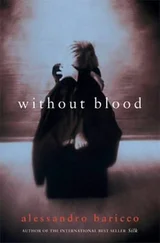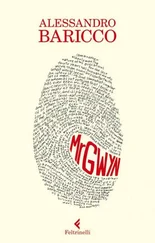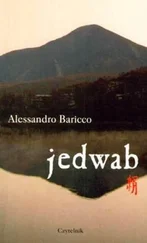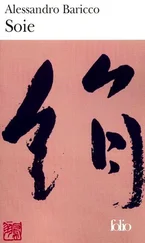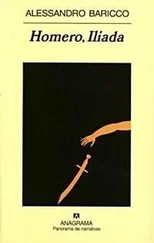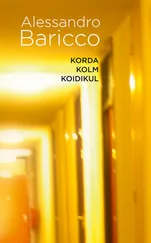It all began one day when — maybe to display particular kindness, maybe compelled by a sudden need — the Mother had gone to him, to adjust an evening dress that, in the city, had evidently not received the proper attention. The neckline had, as a result turned out imperfectly.
Baretti was thirty-eight at the time. He was married. He had two children. He would have liked a third. That day, however, he became old, and at the same time a child, and conclusively an artist.
As he often had occasion to recount later, the Mother pointed out to him right at the start that if he persisted in looking in the other direction it wouldn’t be easy to make him understand what she wanted from him.
Forgive me, but I don’t think I have the necessary boldness to be useful to you, he had defended himself, keeping his eyes away from the neckline.
Don’t talk nonsense, you’re a tailor, right?
I generally devote myself to male fashion.
Badly. Your business must feel the effects.
In fact.
Devote yourself to women, it will undoubtedly bring you advantages.
You think so?
I have no doubt.
I believe you.
Then look at me, good Lord.
Baretti looked at her.
You see here?
Here was where the fabric followed the curve of her breast, conceding something to the gaze and suggesting much to the imagination. Baretti was a tailor, so nudity was not indispensable to him — he knew how to read bodies under the cloth, whether they were the bony shoulders of an old notary or the silky muscles of a young priest. So, when he turned to examine the problem, he knew instantly how the Mother’s breasts curved, how the nipples turned them slightly outward while drawing them upward, and that the skin was white, spotted with freckles that were just visible in the uncovered area but that certainly descended to where it was impossible for most men to see them. He felt in the palms of his hands what the lovers of that woman had felt, and he sensed that they had known perfection, and certainly despair. He imagined them squeezing, in the blindness of passion, and caressing, when all was lost: but he couldn’t find in the entire natural kingdom a fruit that even distantly recalled the mixture of fullness and warmth that they must have found at the conclusion of those acts. So he uttered a sentence that he would never have believed himself capable saying.
Why so high-necked?
I beg your pardon?
Why do you wear a dress with such a high neck — it’s a sin. An unforgivable sin.
You really want to know?
Yes, said Baretti, against every conviction he had.
I’m tired of incidents.
Incidents of what sort?
Incidents. If you want I’ll give you some examples.
I would like that. If it won’t bother you, in the meantime I’ll try to operate on these darts, which seem to me completely out of place.
Thus Baretti’s Index had its origin, first composed of the examples that the Mother generously provided, and later supplemented by extremely copious testimonies, gathered over the years and arranged in a single liturgical narrative that some called a Saga , others a Catalogue , and Baretti, with a pinch of megalomania, an Epic Poem . The subject consisted of the curious effects produced over the years by having touched, glimpsed, grazed, intuited, or kissed the Mother’s bosom, in those who had embarked, incautiously, on one of the aforementioned five operations: what the Mother called, in a rare display of synthesis, “incidents.” Baretti’s skill lay in memorizing everything, without hesitations; his genius in reducing the multifaceted and infinite case histories in question to a formulaic scheme of undoubted effectiveness and a certain poetic value.
The first section was fixed:
It should not be forgotten that
Between “should not” and “be” there often appeared, for musical reasons, an adverb.
It should not, however, be forgotten that
It should not, moreover, be forgotten that
It should not, of course, be forgotten that
There followed a brief situating in time or space
the eve of Easter
at the entrance to the Officers’ Club
which introduced the mention of the protagonist, most of the time shielded by a minimally generic expression
a noncommissioned officer in the engineer corps
a foreigner who arrived on the 6:42
but sometimes cited by name
the notary Gaslini
Following this came the statement of the facts, which Baretti insisted be rigorously checked
He danced the fourth waltz of the evening with the Mother, twice squeezing her hard enough to feel her breast press against the blue tailcoat.
He had a relationship with the Mother that lasted three days and three nights, apparently without interruption.
At this point Baretti paused, sometimes just perceptibly, employing a theatrical technique of which, over time, he had become a master. Anyone who has been present at one of the recitations of the Index knows that, during that pause, a very particular silence formed among the listeners, in which it’s doubtful that anyone thought of breathing. It was like an animal rhythm, and Baretti managed it splendidly. During the universal suspension of breath, he rolled out the second part of the narrative, the critical part, the one that gave an account of the peculiar consequences of the event cited — what the Mother called “incidents.” This section was less rigid: the meter had different stresses each time and the report unfolded with a certain freedom, leaving space for invention, imagination, and, often, improvisation. There was always something true, according to Baretti, but all agree with the statement that the contours of the circumstances suffered from a certain tendency toward the marvelous. It was, however, what everyone expected — a sort of final and liberating reward.
In summary, the formulaic scheme perfected by Baretti provided for two sections, of which the first (inhale) was made up of four subsections, and the second flowed with greater freedom but nevertheless respected a certain overall harmony (exhale). It should be noted that this scheme was repeated dozens of times and — as the years passed and further examples accumulated — even as many as a hundred. One can easily deduce the hypnotic or at least lulling effect of this singular recitation. I myself can state that witnessing it was a remarkable experience — rarely boring, always delightful. I mean, I’ve seen much more pointless things in the theater. And there I’d even paid for the ticket. It should not, moreover, be forgotten that, in April of 1907, the brother of a well-known exporter of wine, in a sudden downpour, found that, crossing the square, he was sheltering the Mother under his umbrella, who with the most natural gesture took his arm, pressing her left breast against him, apparently intentionally. (Pause.) Everyone knows that the brother of the well-known exporter of wines deduced from it promises that later, not kept, led him to move to the South, where at present he lives with a dialect actor. It should not be forgotten that, during the 1898 ball for eighteen-year-olds, the Mother took off her shawl and danced alone, in the middle of the ballroom, as if in a sudden fit of girlishness, careless of the fact that one strap of her dress had slipped off. (Pause.) It must also have been his age, but certainly it was there that Deputy Astengo was abruptly stricken by a heart attack, and died while formulating in his mind doubts about having mistaken some priorities in life. It should not, moreover, be forgotten that the esteemed painter Matteo Pani got permission from the Mother to paint a nude of her, which, because of a belated form of modesty, she insisted be half-length. (Pause.) The portrait was later acquired by a Swiss banker who spent the last eleven years of his life writing to the Mother every day, with no response, asking to sleep with her for just one night. Nor should it, of course, be forgotten that on the beach at Marina di Massa, where the Mother by mistake spent the vacation of 1904 as a guest at the Albergo Hermitage, a young waiter who happened to come to her assistance during a fainting spell undoubtedly caused by the heat clasped her tight in his arms, at a moment when the Mother was wearing a simple bathrobe over her bare skin. (Pause.) The waiter on that occasion discovered the existence of further horizons, left his family, and opened a dance hall where even today the entrance displays, without apparent logic, a hotel bathrobe. Similarly we cannot forget that the third son of the Aliberti family, who suffered from a nervous condition, during a private party asked the Mother, who was very young at the time, to strip for him, in exchange for his entire inheritance. (Pause.) The Mother, as we know, took off her blouse, undid her corset, and let him touch her, refusing the inheritance; the satisfaction of leaving the third son of the Aliberti family lying senseless on the floor while she dressed was enough.
Читать дальше

